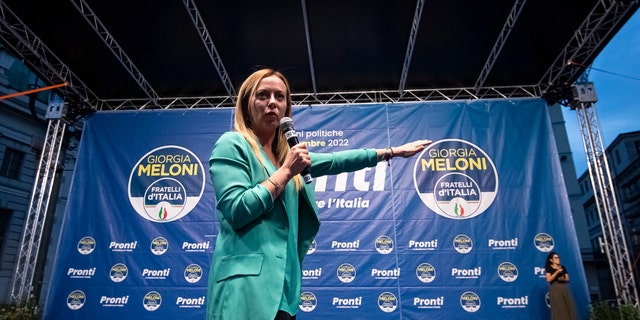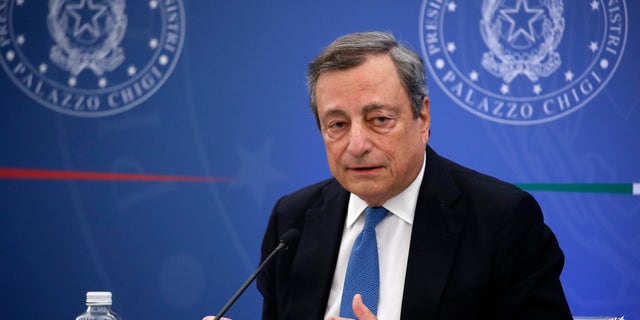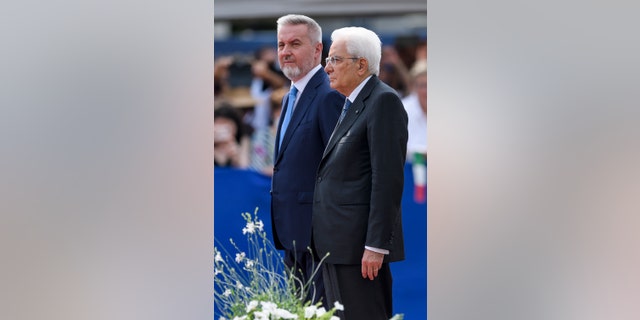From fringe leader to front-runner: Italians set to elect first female prime minister
Italy is expected to elect Giorgia Meloni as its first female prime minister when the country goes to the polls Sunday in its first general election since 2018. Meloni, a former journalist and right-wing conservative activist, has experienced a meteoric rise in politics from her teenage activist days.
She won her first local election at 21 and was the country’s youngest minister at 31. Meloni’s success has largely been attributed to her steadfast determination and refusal to compromise.
“She is a relatively young woman and has very direct and effective rhetoric,” Carlo Bastasin a non-resident fellow and Europe expert with the Brookings Institution told Fox News Digital. “She manages to combine reassuring dialectical elements while maintaining a provocative tone that makes her seem different from the standard politician. The fact of being a woman and young distances her from the post-fascist cliché: virile and nostalgic.”
Recent polling has consistently shown that a coalition comprising several right-wing parties, including Meloni’s the Brothers of Italy (FDI), Forza Italia and Lega, leading their opponents with over 25% of voters supporting them.

MILAN AIRPORT DOGS SNIFF OUT 30 POUNDS OF COCAINE HIDDEN IN WHEELCHAIR
While other right-wing parties’ support slipped due to their participation in Prime Minister Mario Draghi’s coalition government, Meloni’s party, which remained outside the government, saw its support increase. This increased support by voters, and from within the coalition, has placed Meloni in a position to be Italy’s first female prime minister.
Italy’s political right has been aided by fractures within the main center-left party, where attempts by the main Democratic Party to form a broad coalition collapsed. Italian politics favors political parties capable of forming broad coalitions and allying themselves with other right-wing parties has put Meloni’s party in a strong position to potentially form such a coalition, if opinion polls are to be followed.
The right-wing coalition has been able to coalesce by calling for across the board tax cuts, which is opposed by their Democratic counterparts who have only proposed tax cuts for lower income groups, in addition to tapping into concerns about the rising cost of living.

Some observers say Meloni has also taken a stand against Russia, while others in Italy and Europe have not. She has pushed for increased military spending in the face of Russian aggression, supported strong sanctions against Moscow, and has shown solid backing for Italy’s transatlantic alliances, while at the same time continuing to adopt traditional policies, including tougher border security, opposition to gender based theories, and support for national institutions over the European Union.
The Associated Press reported that another issue that has drawn interest is whether Meloni will uphold Italy’s law that legalized abortion through the first four months of a pregnancy or later if the health or life of the mother is endangered. Meloni has insisted that she will respect the law but with the understanding that women who do decide to give birth are given help.
Indeed, the first challenges of a Meloni government will be to gain the majority in both chambers within a slimmed down parliament. Italian coalition building is a notoriously slow process but, with a decisive enough political victory, it may not take the three months it did in 2018 to form a government.

ITALY FLOODS LEAVE 10 DEAD
The Republic of Italy has been notorious for political instability since its founding in 1946. Since 2011, Italy has had six different prime ministers, including Giuseppe Conte, who served two different terms from 2018-2021.
“It is true that the Italian coalitions are inherently unstable. Governing in Italy means paying a high price in terms of popular consensus and this may be acceptable for those who, like Meloni, in the event of victory, will have the leadership of the government,” said Bastasin who cautioned that “on the contrary, the allies will be tempted to leave the coalition after the first months, because they will bear a political cost without an equivalent benefit.”
The new parliament will convene Oct. 13. Once that happens, President Sergio Mattarella can begin talks with party leaders to discuss the formation of a government.
Italians go to the polls on Sept. 25.
The Associated Press and Reuters contributed to this article.
Read the full article Here


